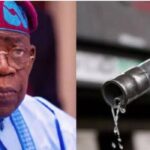SERAP Prosecute Tinubu
SERAP Prosecute Tinubu

Introduction
The Socio-Economic Rights and Accountability Project (SERAP), a prominent Nigerian civil society organization, has taken legal action against President Bola Ahmed Tinubu. The lawsuit addresses the recent hike in petrol prices, which SERAP claims is unlawful, and demands a thorough investigation into the Nigerian National Petroleum Company Limited (NNPCL). This legal move underscores growing discontent over the rising cost of living and calls for greater transparency and accountability in Nigeria’s oil sector.
Background of the Case
On September 14, 2024, SERAP filed a suit at the Federal High Court, alleging that the recent increase in petrol prices constitutes a breach of citizens’ rights and legal standards. The group contends that the price hike, implemented without adequate public consultation or justification, infringes on the fundamental rights of Nigerians, particularly in light of ongoing economic challenges.
The lawsuit demands that President Tinubu’s administration reverse the price increase and address allegations of mismanagement and corruption within the NNPCL. SERAP argues that the government’s failure to do so represents a neglect of its constitutional duty to ensure affordable fuel for its citizens and maintain transparency within state-owned enterprises.
Legal and Economic Implications
SERAP’s legal action could have significant implications for both the government and the oil industry. If the court rules in favor of SERAP, it could set a precedent for how fuel price adjustments are handled in Nigeria. The case also places pressure on the government to ensure that any changes in fuel prices are justified and that the NNPCL operates with greater accountability.
Economically, a reversal of the price hike could alleviate some of the financial burdens faced by Nigerians, particularly in a country where fuel prices heavily influence transportation and goods costs. However, it may also impact government revenue and the stability of the oil market.
Political and Social Reactions
The lawsuit has sparked varied reactions across Nigeria. Supporters of SERAP view the action as a necessary step towards holding the government accountable and protecting citizens’ rights. Critics, however, argue that such legal battles may not address the underlying issues affecting the oil sector and the broader economy.
Political analysts suggest that the case could influence upcoming elections and governmental policies, as it highlights the growing public dissatisfaction with economic management and governance. The outcome of the lawsuit may shape future policy decisions and public discourse on fuel pricing and state-owned enterprises.
Conclusion
SERAP’s lawsuit against President Tinubu over the petrol price hike and the NNPCL investigation reflects a critical moment in Nigeria’s ongoing struggle with economic management and governance. As the case progresses, it will likely have broad implications for how the government handles fuel pricing, accountability, and public welfare. The legal battle underscores the importance of transparency and responsiveness in addressing the economic concerns of ordinary Nigerians.
TRENDING SONGS
 Wedding Called Off: How Lady Cancels Wedding After Finding Out Finance’s Affairs With Her Bestie
Wedding Called Off: How Lady Cancels Wedding After Finding Out Finance’s Affairs With Her Bestie
 Heartbreak in Ikeja: Lady Weeps After Fufu Found in New Phone Package
Heartbreak in Ikeja: Lady Weeps After Fufu Found in New Phone Package
 Twist of Fate: Man Who Questioned Phyna’s ₦1Billion Demand Mourns Brother in Dangote Truck Crash
Twist of Fate: Man Who Questioned Phyna’s ₦1Billion Demand Mourns Brother in Dangote Truck Crash
 Tragedy in Enugu: Dangote Truck Claims Lives of Family of Five
Tragedy in Enugu: Dangote Truck Claims Lives of Family of Five
 Bangkok Crackdown: Nigerian-Thai Couple in Police Net Over Drug Trafficking
Bangkok Crackdown: Nigerian-Thai Couple in Police Net Over Drug Trafficking
 Family Rift: Reno Omokri’s Ex-Wife Says He Deserted Their Special Needs Son
Family Rift: Reno Omokri’s Ex-Wife Says He Deserted Their Special Needs Son
 The Man Who Sent Money for Two Decades, Only to Return to an Empty Shell
The Man Who Sent Money for Two Decades, Only to Return to an Empty Shell
 See how a young lady was beaten in a village and naked for stealing a goat
See how a young lady was beaten in a village and naked for stealing a goat
 See How Man That Plans to Divorce His Wife, Gets Shocked When She Leaves Him First With Their 5 Kids
See How Man That Plans to Divorce His Wife, Gets Shocked When She Leaves Him First With Their 5 Kids
 Tragic Land Dispute: Man Kills Father in Imo, Pastor Arrested for Rape
Tragic Land Dispute: Man Kills Father in Imo, Pastor Arrested for Rape
Share this post with your friends on ![]()













